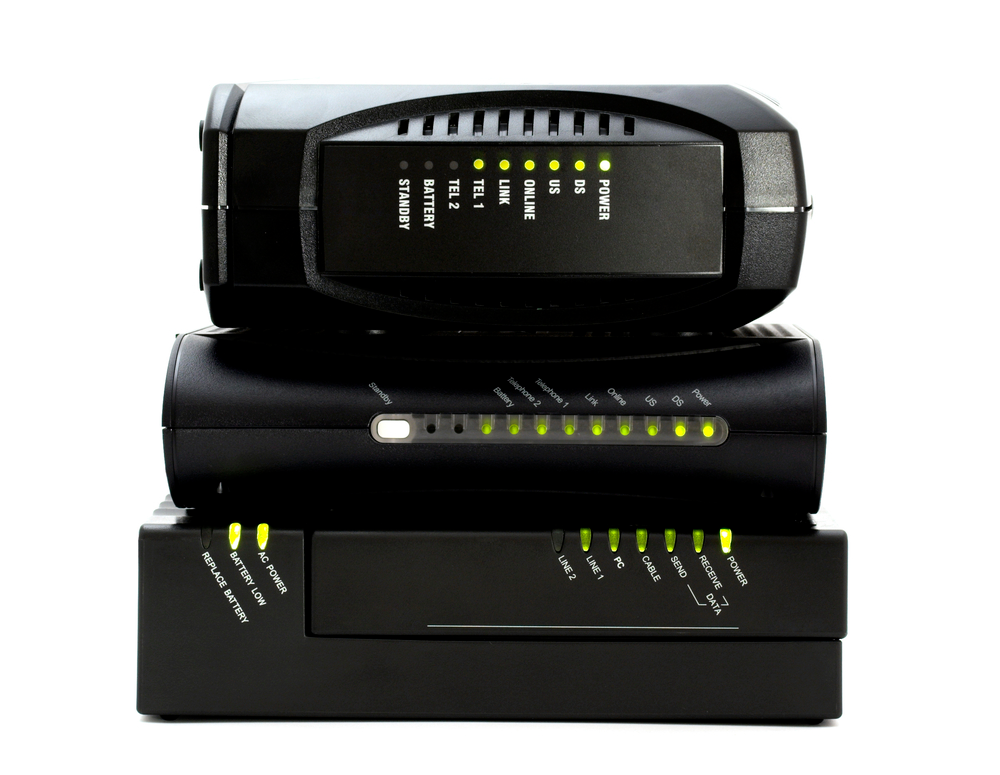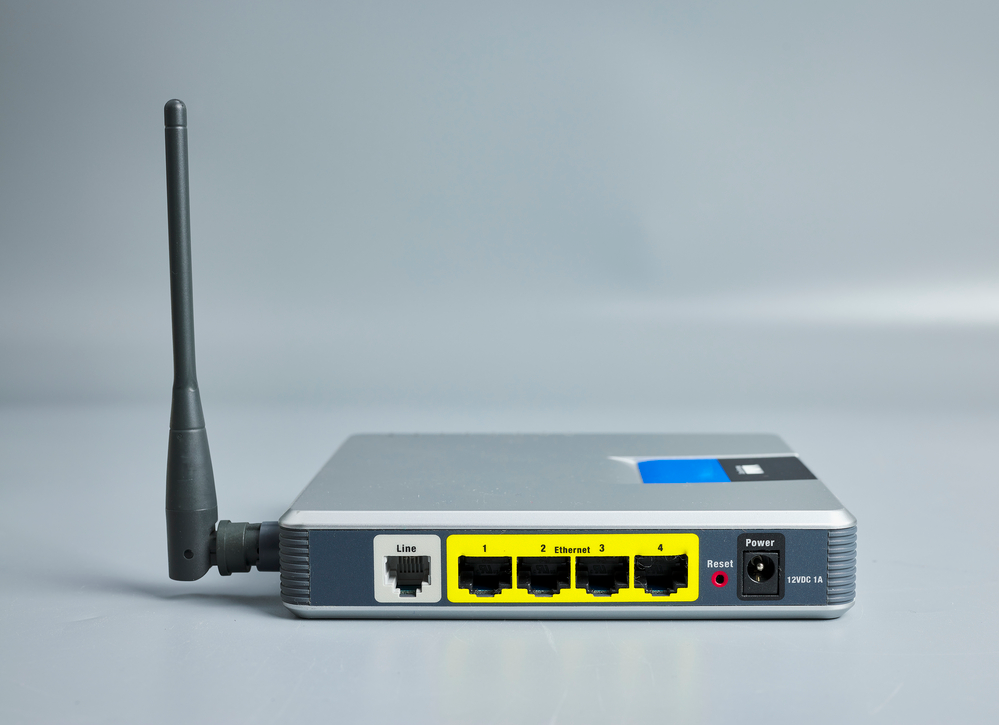Modems and routers are two of the most commonly used devices for connecting devices to the internet. While these devices are often used interchangeably, they have different functions and purposes.
A modem is a device that connects your home or business network to the internet. It converts the signal from your internet service provider (ISP) into a format that your devices can understand.
A router, on the other hand, is a device that connects devices within your network to each other and to the internet. It allows devices to communicate with each other and provides a way for devices to connect to local network and to the internet simultaneously.
Understanding the differences between modems and routers is crucial for anyone using the internet, whether for personal or professional use.
TL;DR: Modems connect your network to the internet, converting signals from your ISP into a format your devices can read. Routers connect your devices to each other and the internet, enabling communication and shared internet access. Understanding their differences aids in troubleshooting and optimizing network performance.
Table of Contents
Modem vs. router: Main differences and similarities
Understanding the primary differences and similarities between these two essential networking devices is crucial for optimizing their internet connectivity and device communication.
A modem and router may look similar, but they perform different functions in connecting devices to the internet. A modem connects the your network to the ISP, transforming digital information into analog signals for wire transmission.
On the other hand, a router directs data between devices in the home or office and the internet, allowing devices to use the internet connection and communicate.
The main difference between a modem and a router is that a modem connects to the internet, while a router connects devices to the internet. A modem is the gateway for the internet connection, while a router is the gateway for a home or office network.
However, when a standalone modem, and router are built together as one device, that is called a gateway. In this case, the gateway acts as both the modem and router, connecting the home network to the internet and directing data between devices in the home.
Understanding the difference between a modem and router is important for troubleshooting internet connectivity issues and optimizing network performance.
Functions of Modems and Routers
The functions of devices responsible for enabling internet connectivity and directing data within a network are distinct and complementary, with modems transforming digital information into analog signals for transmission over wires and routers allowing multiple devices within local area network to access the internet and communicate with each other.
A modem is responsible for connecting a home network to an internet service provider by transforming digital information into analog signals that can be transmitted over wires. It serves as the gateway between the outside world and the Ethernet jack on a computer or router. This function is essential for DSL or fiber internet connections, which usually require a provider-provided modem. Cable internet users, however, can benefit from buying their own modems to avoid monthly fees.
On the other hand, a router is responsible for directing data between devices in a home and the internet. It is separate router that allows multiple devices to use an internet connection and communicate with each other. This function is particularly important for homes with many smart devices or for those that require better coverage.
Routers can be replaced to accommodate the latest Wi-Fi technology improvements or to support additional devices. Mesh Wi-Fi systems like the Eero 6 can be used for larger homes to ensure devices connect to the router or satellite with the best signal. Firmware updates can also improve router performance and fix security problems, while changing default passwords can reduce the risk of unauthorized access.
Modems

As the gatekeeper between a home network and your ISP, the device responsible for transforming digital information into analog signals for transmission over wires plays a crucial role in enabling internet connectivity. This device is called a modem.
Modems come in different types, including analog, digital subscriber line (DSL), and cable modems. While analog modems use telephone lines for connection, DSL modems use phone lines but provide faster internet speeds, and cable modems connect via coaxial cables for faster internet speeds.
Modems function independently from routers and are responsible for getting the internet to your wired and wireless devices. They are the first point of contact between your home network and the internet. The modem receives data from the internet and translates it into a format that your computer or router can understand. Without a modem, devices in a home network cannot connect to the internet.
The modem and router difference lies in their functions, with modems responsible for connecting to the internet and routers responsible for connecting devices within a home network.
Routers

A router is an essential device that enables devices to communicate wired and wirelessly and connect to the local area network by distributing the Wi-Fi signal throughout an area, creating a wireless network with external antennas and multiple Ethernet ports. Unlike a modem, which transforms digital information into analog signals for transmission over wires, a router cannot work without a separate modem. You will need a router when you have that need to connect to the internet or if you want to use those devices wirelessly (over WiFi). Your router connects those devices to your home network or WiFi network, enabling your devices to communicate wirelessly and connect to the internet.
To help you understand the difference between a modem and a router, here is a table that outlines the main characteristics of both devices:
| Device | Function | Connection |
|---|---|---|
| Modem | Transforms digital information into analog signals for transmission over wires | 1 port for outside world, one port to connect to your router. |
| Router | Distributes Wi-Fi signal throughout an area, creating a wireless network with external antennas and multiple Ethernet ports | Connects devices to home network or WiFi network |
By understanding the difference between a modem and a router, you can make informed buying decisions and troubleshoot connectivity issues more effectively. The next section will discuss how to troubleshoot and maintain your modem and router combo or gateway.
Troubleshooting and maintaining your router or gateway
Improper maintenance and unresolved connectivity issues can negatively impact your home network’s performance, hindering all your devices from being able to communicate and connect to the internet.
It is also important to note the difference between a modem and a router. A modem is used to connect your home network to your internet service provider, while a router directs data between devices in your home and the other internet access itself.
Some internet service providers offer a gateway device that serves as both a modem and a router, but it is recommended that cable internet users purchase two separate devices to save on monthly internet bills.
By understanding the functions of these devices and properly maintaining them, you can ensure a smooth and reliable internet connection for all of your devices.
Conclusion
In conclusion, understanding the differences between modems and routers is crucial for anyone looking to to connect multiple devices to the internet. While modems are responsible for converting signals from your internet service provider into a language your devices can understand, routers enable multiple devices to connect to the internet through a single connection.
Whether setting up a new internet connection or troubleshooting connectivity issues, having a basic understanding of these devices will go a long way.
As the famous saying goes, ‘knowledge is power,’ and in this case, it’s the power to stay connected. With a wide range of available options, choosing the right modem and router can be overwhelming. However, you can make an informed decision with careful research and understanding of your internet needs.
Regularly maintaining and troubleshooting your modem and router can ensure your internet connection remains stable and reliable. So, whether you’re a casual internet user or a business owner, investing time and effort into understanding and maintaining your own modem, and router can go a long way in keeping you connected.

